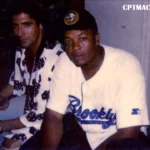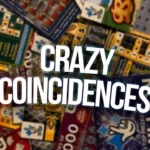Hard Times Create Strong Men Meme Monkey: The meme proverb “Hard times create strong men. Strong men create good times. Good times create weak men. Weak men create hard times” is a cyclic statement about societal rise and fall. It’s often used to reflect on generational decline, resilience, or moral cycles.
In recent years, meme creators have remixed it with animal imagery—especially monkeys—leading to variations like “Hard times create strong monkeys”, or “strong monkeys create good times… weak monkeys create hard times.” A YouTube Shorts video captioned “Hard times create strong monkeys” is an example.
Sites like Imgflip offer meme templates labeled “hard times create strong men”, which users adapt with different images (including monkeys) and custom text.
So the “meme monkey” variant is a playful or ironic twist on the original phrase—substituting monkeys for men to add humor, satire, or a subcultural in-group flair.
Origins & Attribution: Where Did the Saying Come From?
The origin of the full cyclical phrase is somewhat murky. Many people attribute it to G. Michael Hopf, a post-apocalyptic novelist, or see it as an aphorism born in internet culture.
- On Facebook, posts quoting similar versions sometimes credit G. Michael Hopf.
- On meme / history discussion boards, users debate whether the phrase has any real historical origin or is purely modern internet folklore.
The Reddit discussion in r/AskHistorians notes that while the sentiment echoes older cyclical views of history (e.g. from classical or medieval sources), this exact phrasing seems to be a modern meme / aphorism, not traced to a verified historical text.
Thus, the “hard times → strong men → good times → weak men → hard times” meme is likely a modern formulation, then co-opted and remixed in internet culture—including with monkey themes.
Meaning & Interpretation: Why Use Monkeys?
Symbolic meaning of the original phrase
The original meme is about generational cycles:
- Hard times breed resilience and strong character
- Strong people build stable, prosperous eras
- Prosperity breeds complacency and weakness
- Weakness ultimately leads to collapse, restarting hardship
It’s a moralistic, cautionary message that resonates in times of social, economic, or political anxiety.
Why monkey versions appear
Replacing “men” with “monkeys” accomplishes several things:
- Humor / Absurdity: The substitution injects absurdity—monkeys are less “serious” than humans, making it meme-worthy.
- Self-effacing / ironic distance: It allows users to invoke the serious sentiment but undercut it with a lighter, less preachy tone.
- Meme identity and in-group signal: Communities adopt variant phrases as a kind of code—those familiar with the base meme will catch the reference.
- Anthropomorphic metaphor: Monkeys are often used in memes as stand-ins for humans in social commentary (e.g. “monkey brain,” ape memes), so the substitution draws on existing meme tropes.
Thus, the “monkey meme” adaptation keeps the core cyclical message but reframes it in playful or satirical mode.
How the Meme Spreads: Platforms, Formats & Remix Culture
Meme generators and templates
Sites like Imgflip host meme generators with the default “Hard times create strong men” template. Users can replace images or swap text, making “strong monkeys” variants easily.
Users might pick monkey pictures (thinking monkeys, apes, or cartoon monkeys) and overlay the cyclical text—this remix culture keeps the idea alive in new visual forms.
Social media shorts, posts, videos
The meme appears on YouTube Shorts, TikTok, Instagram Reels, etc., often with the phrase on screen over a monkey image or video clip, sometimes set to music or shifting text. For example, “Hard times create strong monkeys” is used in a YouTube Shorts caption.
Shared posts, meme pages, or image boards circulate static versions—PNG images or reposts. Because the text is catchy and generative, it often spreads via shares, reposts, or meme pages.
Remixing & hybrid versions
Variants may:
- Keep the original human version and insert a monkey image
- Blend human + monkey text (e.g. “strong men & strong monkeys”)
- Use the phrase on anthropomorphic animal images
- Localize or translate it in different languages
- Combine with other memes (e.g. “when you survive hardship you become the monkey” type jokes)
This remix flexibility keeps the meme adaptable to contexts, communities, or trends.
Critiques, Problems & Limitations
Though popular, this meme (and particularly the monkey adaptation) carries criticisms and caveats.
Oversimplification & deterministic worldview
The phrase implies a deterministic cyclical view of history—one generation’s failures inevitably cause the next. But real societies are more complex, with many variables (culture, institutions, geopolitics). Critics argue this is overly reductionist.
Gender / exclusion concerns
By using “men,” the original phrase can be read as gendered—some may interpret it as male-centric or excluding women’s roles in history. Substituting “monkeys” sidesteps gender but may obscure meaning.
Meme flattening & satire dilution
Overuse or parody versions (monkey memes) may erode the seriousness of the original message, turning it into shallow or ironic content detached from its intended moral weight.
Misattribution & false origin
Many share it as a “quote” without recognizing it’s modern, possibly misattributed to famous thinkers. This can mislead people about its historical authenticity. The AskHistorians thread argues it’s a meme, not an ancient aphorism.
Relevance & mood mismatch
In some contexts, invoking “hard times create strong men / monkeys” may ring hollow or seem tone deaf—especially during ongoing hardship—unless used with sensitivity.
Why It Matters & What the Meme Says About Culture
The endurance and adaptation of this meme (including the monkey variant) reflect broader cultural dynamics.
Cultural resonance in times of crisis
When societies face economic uncertainty, political upheaval, or social change, the meme offers a narrative: adversity is necessary for growth, and decline is cyclical. That message appeals to people seeking meaning or explanation.
Internet culture loves remix & absurdity
Turning serious ideas into absurd memes (monkey versions) is typical of meme culture: blending depth and silliness, letting communities participate in a shared visual language.
Identity and in-group signaling
Adopting a variant like “strong monkeys” signals familiarity with meme traditions. It draws on a shared symbolic lexicon—those “in the know” appreciate the inside joke.
Memes as modern aphorisms
Even though this phrase is relatively new, it functions like a proverb in digital culture. It encapsulates a worldview, is repeated, remixed, and shared—serving as a kind of folk wisdom in the age of social media.
Conclusion
The “Hard times create strong men” meme is a vivid illustration of how modern culture fashions symbolic narratives for persistence and decline. The monkey adaptation—“strong monkeys” replacing “strong men”—is a playful remix that keeps the core idea alive while adding humor, distance, or meme flair.
While the original statement has no clear ancient provenance and is likely a modern meme or aphorism, its cyclical view of rise and fall resonates, especially in times of uncertainty. The monkey variant shows how internet culture takes serious ideas and reinterprets them through absurdity, remix, and shared visual language.








